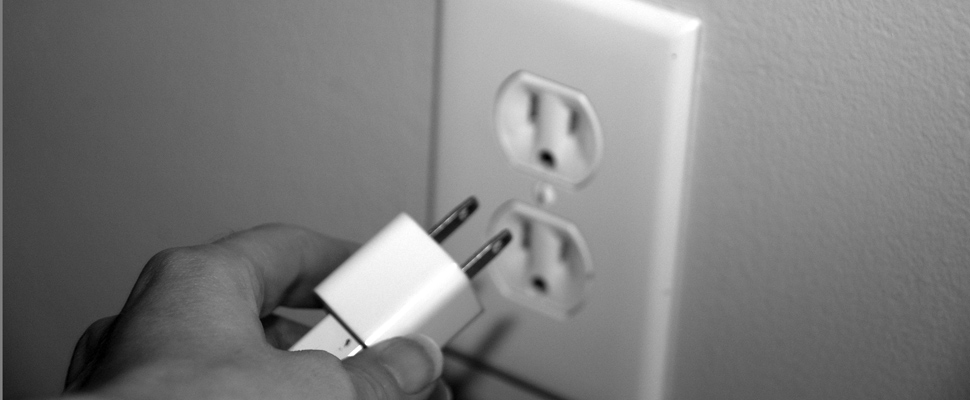Off means off, right? Not when it comes to most electronic devices.
When you turn the “off” switch on most of your electronics, what actually happens is the product goes into standby mode. This means that the product is still drawing electricity and thus still costing you energy (and money). Often, this standby power phenomenon has been called “phantom load” because most of us don’t have a clue that plugged-in devices are still using energy. According to Energy Star, the average U.S. household spends $100 per year on phantom load (that’s more than $10 billion nationally).
Here are the best ways to slay phantom energy costs:
Pull the Plug
This is especially useful with chargers for your cell phone, computer or other devices. There’s no added benefit to keeping chargers pulled in, so why not pull the plug and save money when they’re not in use.
Use a Central Power Strip
If you have lots of electronics in one area, consider a centralized power strip that you can switch to off when you’re done using the electronics connected to it. This is best for electronics that don’t need to run all the time, such as televisions, DVD players, stereo, etc. You’ll probably want to keep your DVR or alarm clock plugged into the wall since you likely need those operating constantly. The central power strip will save you from having to unplug 5-6 devices when you’re done using them.
Buy Energy Star products
Many Energy Star products have lower standby power usage, so if you forget to pull the plug, you’re not losing near as much energy as with other electronics.
Know the Energy Enemy
It helps to know the worst phantom load offenders, so check out this chart to find the products in your home that are secretly making your energy bill climb.
Pass the Word
Help a friend by letting them know about phantom load and how pulling the plug can save energy.
